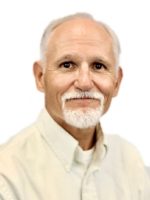
Dr. John A. Gruner
Director of Neurophysiology
Dr. Gruner directs all neurophysiology studies at Melior. He specializes in working with clients to custom-design experiments to evaluate therapeutic efficacy in models of motoneuron disease (e.g. G93A transgenic SOD mice), neurotrauma, pain and muscle relaxation (nociceptive and proprioceptive spinal reflexes and neuromuscular function), sleep / wake and general cortical function (including high-frequency EEG analysis and evoked potentials), and EEG-based pro- and anti-convulsant evaluation.
During his 19 years at Cephalon, Inc., he designed and supervised neurophysiological and pharmacological studies involving numerous disease areas, including evaluation of neuroprotection by trophic agents, free radical inhibitors, kinase inhibitors, and other compounds in neuropathy, neurodegeneration, and motor neuron disease models. He has also elucidated mechanisms of action of proprietary analgesic agents and utilized evoked potentials for evaluating functional impairment in models of cognitive disorders such as schizophrenia.
He built and ran Cephalon’s preclinical sleep research laboratory, and studied the actions of dopaminergic agents and other drugs in sleep / wake and convulsant activity. He was a discovery team member for several sleep and wake enhancing and psychostimulant agents, including an H3-receptor inverse agonist (irdabisant) currently in clinical development.
Dr. Gruner received his B.A. from UCSD and Ph.D. at Purdue University, where he investigated the role of the cerebellum in motor control. As a postdoctoral fellow and later Research Asst. Professor in the Dept. of Neurosurgery at NYU, he designed stimulation systems for paralyzed muscle, was involved in experiments elucidating the role of synapsin phosphorylation in synaptic vesicle release, and carried out electrophysiological and behavioral studies to evaluate treatment efficacy using the spinal cord injury model he helped develop at NYU. Dr. Gruner is the author / co-author on over 40 publications and 1 patent in various areas of neurophysiology.
